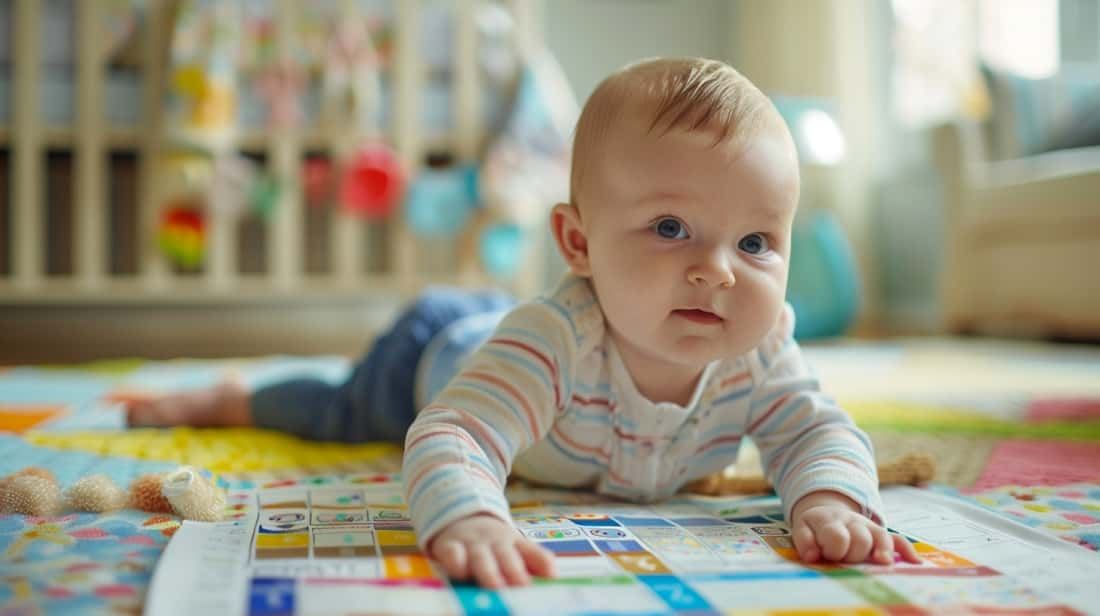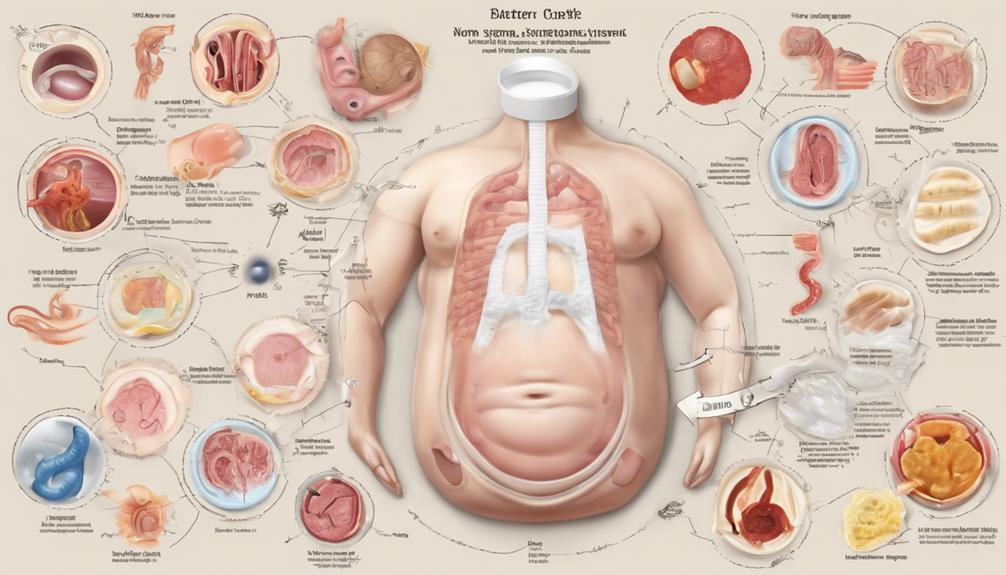If your newborn has hiccups, you're not alone in seeking solutions to soothe those sudden spasms. Understanding the triggers behind these tiny tummy troubles is important for effective hiccup management.
However, when simple remedies like burping or gentle patting on the back don't do the trick, what could be the next step to bring your little one comfort and relief?
Key Takeaways
- Burping and pacifiers offer quick relief for newborn hiccups.
- Changing baby's position aids in releasing trapped air bubbles.
- Maintain a calm feeding environment to prevent and manage hiccups.
- Seek medical advice if hiccups persist over 10-15 minutes or baby shows distress.
Causes of Newborn Hiccups
Newborn hiccups occur when your baby's diaphragm experiences quick, jerky movements. These tiny spasms are often triggered by factors like rapid feedings or swallowing excess air during meals. When your newborn feeds too quickly, it can lead to the ingestion of air, causing the diaphragm and vocal cords to contract involuntarily. This natural reflex helps to strengthen the baby's diaphragm and respiratory muscles over time.
While hiccups in newborns are generally harmless, they can sometimes be bothersome or concerning for parents. Remembering that these hiccups are typically a normal part of your baby's development and rarely indicate a medical issue. Most of the time, newborn hiccups will resolve on their own within a few minutes, so there's usually no need to worry. By feeding your baby at a slower pace and ensuring proper burping to release trapped air, you can help prevent frequent hiccups.
Soothing Techniques for Hiccups

If your little one is experiencing hiccups, there are gentle techniques you can use to help soothe and alleviate their discomfort. Burping your baby during hiccups is a helpful way to release any trapped air that might be causing the spasms.
Another effective method is offering a pacifier, which can relax the diaphragm and potentially stop the hiccups. Changing your newborn's position, such as holding them upright, can also aid in relieving hiccups by adjusting the flow of air.
Additionally, gently rubbing your baby's back during hiccups can help alleviate discomfort and release any trapped air bubbles. Remember to avoid adult remedies like holding your breath or breathing into a bag, as they aren't safe or effective for newborn hiccups.
Remedies to Stop Hiccups

To alleviate your newborn's hiccups effectively, consider trying these proven remedies. Start by gently burping your baby to release any excess gas that might be causing the hiccups. This simple act can often help stop the hiccups quickly.
Offering a pacifier to your little one may also aid in relaxing the diaphragm, which could alleviate the hiccups. Remember, hiccups in newborns typically resolve on their own within 5 to 10 minutes, so allowing them to stop naturally is usually effective.
It's important to avoid using gripe water for hiccups without scientific evidence of its efficacy, as it may not be safe for your newborn. Instead, focus on creating a calm and soothing feeding environment, as this can help prevent hiccups from occurring in the first place.
Preventing Hiccups in Newborns

Consider maintaining a relaxed atmosphere during feedings to help prevent hiccups in your newborn. Burping your baby frequently during feedings is crucial as it releases excess gas and aids in preventing hiccups. Slowing down the feeding pace and taking breaks for burping can significantly reduce the occurrence of hiccups in newborns. Creating a calm and soothing environment during feeding times can also help in preventing hiccups. Remember to hold your baby upright after feeding to assist in digestion, which can further prevent hiccups. Utilizing proper bottle feeding techniques, ensuring the correct nipple sizes, and establishing a good breastfeeding latch are essential steps in preventing hiccups in newborns.
| Preventing Hiccups in Newborns | ||
|---|---|---|
| Burping Frequently | Slowing Feeding Pace | Creating Calm Environment |
| Holding Upright After Feeding | Using Proper Bottle Feeding Techniques | Ensuring Good Breastfeeding Latch |
When to Seek Medical Advice

When your newborn's hiccups persist for more than 10-15 minutes, seeking medical advice is recommended. While hiccups are common in babies and often harmless, prolonged episodes could indicate an underlying issue.
If your baby seems uncomfortable, distressed, or experiences hiccups accompanied by vomiting or difficulty breathing, it's important to contact a healthcare provider promptly. Caution is advised when considering home remedies, as they may not always be suitable for infants.
Immediate medical attention is necessary if your newborn has prolonged hiccups lasting hours or shows signs of pain. Remember, your baby's well-being is paramount, and seeking medical advice in such situations ensures proper evaluation and care. Trust your instincts as a parent and reach out to your healthcare provider whenever in doubt about your newborn's hiccups to guarantee their comfort and health.
Frequently Asked Questions
How Do You Get Rid of Hiccups for Newborns Fast?
To get rid of hiccups for newborns fast, try burping them, changing feeding positions, using a pacifier, gently rubbing their back, or letting hiccups pass naturally in 5-10 minutes. These methods often help soothe your baby quickly.
Is It OK to Lay Baby Down With Hiccups?
It's generally safe to lay your baby down with hiccups if they're not distressed. Most babies can sleep fine with hiccups. It usually doesn't make hiccups worse. If your baby's calm, it's okay to let them rest. Just guarantee a safe sleeping environment.
What Is the Best Position for Baby Hiccups?
When your newborn has hiccups, the best position to try is holding them upright against your chest. This can help relax their diaphragm. Remember, a little comfort from you can go a long way in soothing those hiccups.
How to Get Rid of Hiccups Fast?
To get rid of hiccups fast, try burping, changing position, offering a pacifier, engaging in playtime, and ensuring comfort. These steps can help release trapped air, relax the diaphragm, and soothe your baby quickly.
Conclusion
So next time your little one is hiccuping away, remember that it's just a bump in the road of their journey.
With a gentle touch and a soothing voice, you can help steer them towards calm waters.
Keep these tips close at hand, and soon those hiccups will be a distant memory, like ripples fading in a tranquil pond.
Your baby will be happy, healthy, and hiccup-free in no time.










